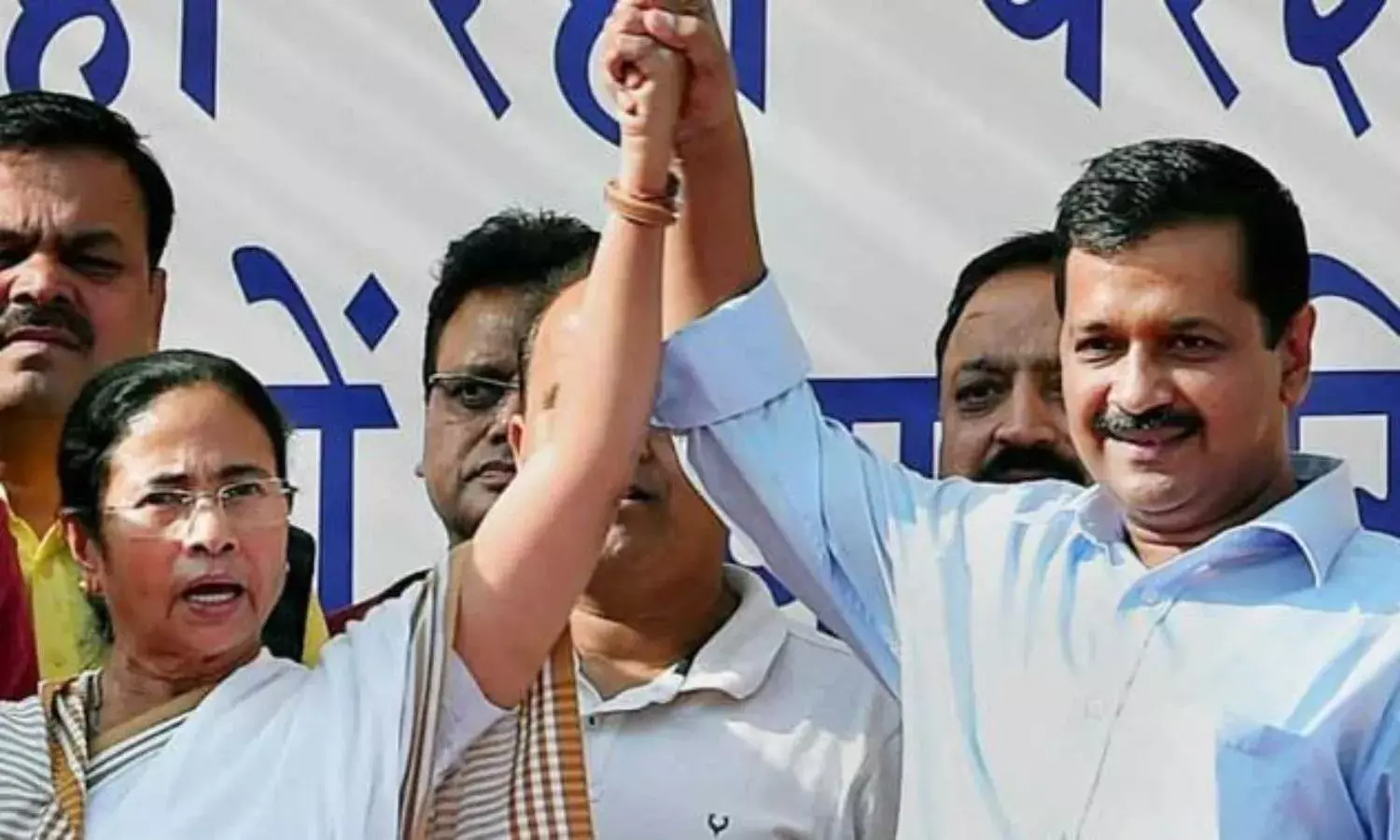Coalition Politics Hit Hard as the Congress Seeks to 'Revive' Itself, Feels Regional Heat
Like UP is West Bengal also going to face a triangular fight now?

NEW DELHI: The Congress party’s sudden decision to field ‘stars’ Priyanka Gandhi and Jyotiraditya Scindia as the party managers for Uttar Pradesh against the BJP but also against the two regional parties has queered the pitch on a national scale. This is reflected in the sudden hardening of positions by the regional parties, that had been speaking of a larger post poll coalition with the Congress in glowing terms till just a few weeks ago.
The UP impact is now being felt in West Bengal where the Trinamool Congress seems to have shut the doors on an election alliance or understanding with the Congress party. The very fact that it is having to talk to the Left parties for the Lok Sabha polls is a clear indication that the Congress ---also under pressure from its state unit of course---is at a loose end and as in UP allying to turn the Lok Sabha polls in West Bengal into a triangular fight.
Since the UP announcement that several regional partners had got wind off about a week before it was announced to the media, the Congress equations with the regional parties in the state has taken a turn for the worse. A senior opposition leader told The Citizen that they had tried to warn Congress President Rahul Gandhi from going ahead with the ‘we will go it alone in UP’ message but regretted that, “he did not listen.” And while the SP and BSP have lost no opportunity to make it clear that the Congress decision does not hurt, there is an anger particularly within the BSP that will now ensure that the national party is excluded from further talks.
The Trinamool Congress, Aam Aadmi Party, Samajwadi Party, Bahujan Samaj Party are coalescing into an informal collective minus the Congress that is being gradually pushed out of the fairly central spot it held till before the UP announcements. These political parties are in touch with the Biju Janata Dal, with the Telugu Desam also indicating support as demonstrated by the decision of Andhra Pradesh leader Chandrababu Naidu’s decision to fly down to Kolkata in support of Chief Minister Mamata Banerjee during the recent CBI fiasco. Delhi Chief Minister Arvind Kejriwal was also by her side extending full support.
Rashtriya Janata Dal leader Tejashwi Yadav also did not hesitate to support Banerjee, although his party is in alliance with the Congress for the Lok Sabha polls. He has however, made it more apparent than his father Lalu Yadav did lately, that the RJD was supportive of a regional led coalition. This at a time when the BJP is working to gain in West Bengal without shifting its focus from UP, both important states and crucial for determining the complexion of the next Lok Sabha.
Significantly, the same opposition leaders who were enthusiastic about the Congress a while ago are now reticent on the issue, expressing concern over the larger party’s “intentions.” As a Karnataka leader said, “Rahul Gandhi who seemed to be reaching out seems to have been controlled by those who are still dreaming of a Congress resurgence, and in the process fracturing unity.” He said he was deeply worried of triangular electoral fights in the states that could help the BJP. Voicing what seems to be a consensus amongst the regional opposition he added, “but the onus is on the Congress as the larger party but somehow they have convinced themselves that they will revive and form the government on their own.”
This shift in approach is also impacting on the coalition in Karnataka with certain Congress leaders who had opposed the alliance with the Janata Dal-Secular back in play. This has been creating fissures expressed emotionally by Chief Minister HD Kumaraswamy at regular intervals. The BJP has been trying hard, as JD-S leader Danish Ali told The Citizen, to break the coalition before the Lok Sabha elections to prove that the non-BJP parties cannot work together. Prime Minister Narendra Modi has already started hammering at the politics of coalition, describing it repeatedly as “adulterated.”
Currently, AAP in Delhi, TMC in West Bengal, and SP-BSP in UP have all declared their inability to go along with the Congress party. This from a position where all were willing to talk with the Congress till over a month ago.
The Left that had played a major crystallising role in 2004 is completely out of the loop following the CPI-M decision to focus on “reviving” the Left and not in cobbling together centrist alliances. Once bitten, the Left is now shy of stitching together what it believes will be a fragile coalition at the expense of its own organisation and strength. The task was thus, left to the Congress party that seemed to be seriously picking up the mantle till the end of 2018 but has started the new year with a completely different approach. Without a nucleus there is a real danger of a larger anti-BJP alliance falling apart or never really coming together even after the elections in what can be termed as a lasting and united option.


